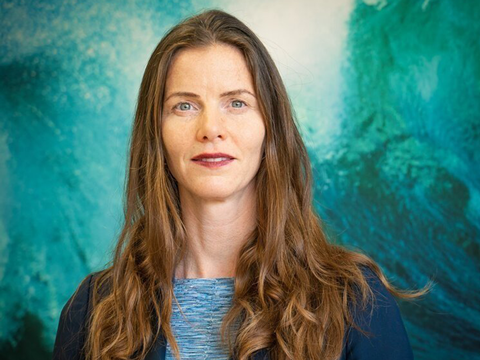
INC-4, the UN-led negotiating process that will eventually lead to the creation of a global, legally binding treaty on plastic pollution, started today. What can we expect from this process, and how can we ensure that real, concrete progress is achieved? Willemijn Peeters, founder of Searious Business, tells us more.
This Earth Day, Ottawa was humming even more than usual – as it gave the floor to the 4th session of the Intergovernmental Negotiating Committee (INC-4) to develop an International Legally Binding Instrument on Plastic Pollution. More than 4,000 participants from governments, NGOs, industry, and civil society are engaged in negotiations for a UN Plastics Treaty, to be finalized by the end of 2024.
The days before the start of the event were packed with side events, receptions, inspirational art installations, marches, raps and even the launch of a new documentary ‘Plastic People’.
And what makes the start of INC-4 so different from the disappointing end of INC-3 is the sense of urgency felt (almost) unanimously. The possibility of not getting global agreement on some of the vital elements already laid out in the draft text makes everyone much more prone to action.
You can feel the excitement in the air, as solutionists rally up and show what’s possible already. The new chair has been clear about his intentions and unwavering support of striking a deal. So government delegations are preparing for what promises to be a negotiating marathon.
They are getting support from the ambitious Scientists’ Coalition, the Innovation Alliance for a Global Plastics Treaty, and an ever-growing Business Coalition (representing >200 businesses and financial institutions), calling for global rules that help to reduce, reuse, and redesign plastics. All demand global rules that scale solutions, spark innovation, and mobilise investment. The only way to end plastic pollution is to urgently adopt global rules.
This shows how much rhetoric has changed from INC-3. A few months ago, most countries only spoke about “downstream” issues of plastic pollution rather than “upstream” issues of how plastic is produced—and how much waste is generated.
During this fourth round of negotiations, the focus is on:
- Prioritising provisions related to restrictions and phase-outs, reuse policies, product design requirements, extended producer responsibility, and waste management. These critical elements have the greatest potential to urgently deliver positive change.
- Building on lessons from voluntary efforts to shape globally binding rules that can scale available solutions to tackle plastic pollution globally, create transparency, and level the playing field for industry.
- Agreeing on a “start-and-strengthen” approach, which focuses initially on the plastic applications and sectors where there is already alignment, such as packaging, fisheries and aquaculture, agriculture, and textiles - to make the most of the limited time left for negotiations.
Moreover, another noticeable shift has been made, in thinking about the Treaty as an opportunity to tackle plastic pollution as a threat to human health. Where before, the environmental impact of plastic pollution was centerfield, several publications have recently been sharing theories around how plastic and its related chemicals are impacting human health, causing a decline in male fertility of 40% (!) over the last 40 years, and how plastics are not only found in our blood, but are also present in your brains.
These very troubling insights are making the matter even more pressing to tackle, and give way to litigation cases as clean environment is seen as a human right.
No wonder the fossil fuel industry is increasingly being scrutinized, especially for being present in the negotiating venue. As cries increase for a ‘plastic premium’, a cap on virgin plastic production and a ban on hazardous substances and chemicals of concern, the fossil fuel industry created a furore in barging off in anger from one of the preparatory events.
We can only hope this nervousness shows how real the change is we are about to make. Investors, businesses, scientists, NGOs and government officials can make a real pact here, and we all are to gain. When we create real results at INC-4, it will also lead to a more robust packaging industry, to be more sustainable long-term.
If you liked this story, you might also enjoy:
The Brief: How viable is biorecycling for plastics?
Report: How the top brands are progressing on packaging sustainability
The Brief: Using ocean-bound plastic in packaging – how, why and should we?













No comments yet